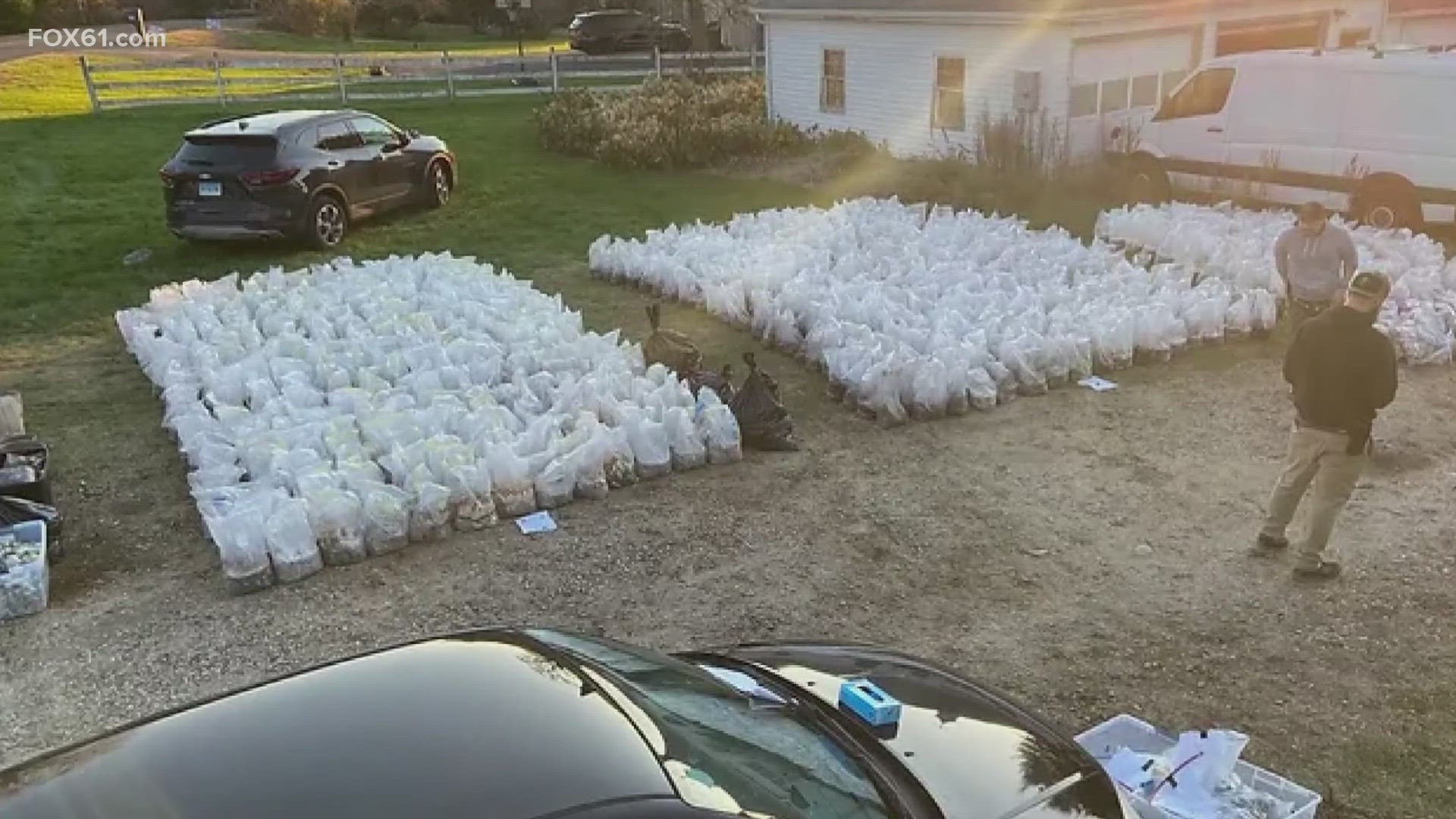In a quiet Burlington neighborhood, a substantial psychedelic mushroom operation, valued at around $8.5 million, was recently uncovered. The arrest of 21-year-old Weston Soule has sent shockwaves through the community and broader psychedelic culture. Soule was apprehended for operating an extensive psilocybin mushroom-growing factory within a residential property.
The discovery has sparked a range of reactions. While law enforcement views this as a significant bust, the psychedelic community is left contemplating the implications. Neighbors, initially unaware, expressed surprise and concern over the scale of the operation happening right under their noses.
What kind of impact does this have on the psychedelic community? Is it a nudge forward, or a step back?

Image courtesy of WTNH.com
The Burlington Mushroom Bust
Connecticut State Police, alongside the Drug Enforcement Administration Hartford Task Force, responded to a residence on Lyon Road following a tip regarding suspicious activity. Upon arrival, officers discovered what Sgt. Anthony Gordon described as “one of the largest mushroom grows” in his 23-year law enforcement career.
Reports indicate that officers observed ventilation equipment throughout the property resembling that used in clandestine laboratories. Further investigation led them to a detached garage, revealing a substantial mushroom-growing setup. Neighbors shared observations indicating unusual activity around the property, including multiple air conditioners running during colder months and increased daytime traffic resembling a business operation.
When Soule denied consent to search his home, detectives obtained a warrant and subsequently uncovered a mushroom-growing factory housing about 1,700 three-kilogram bags of psilocybin mushrooms at various growth stages. According to Sgt. Gordon, the entire residence, except for a small area with basic amenities, was dedicated to mushroom cultivation.
Soule cooperated with authorities upon his arrest, admitting to the illegal nature of the mushrooms. Despite displaying no prior criminal record and being described as a person of wasted potential by Gordon, Soule faces charges of possession with intent to sell/distribute narcotics and operating a drug factory.
It was revealed that Soule had been renting the property, with the homeowner reportedly unaware of the illicit operations. Soule posted a $250,000 cash/surety bond.
The bust has reverberated through the community, raising awareness about the prevalence of such operations and highlighting law enforcement’s ongoing efforts to combat illegal drug cultivation and distribution.

The Psychedelic Movement at a Crossroads
Psychedelics, particularly psilocybin, have been gaining ground as tools for mental health treatment and spiritual growth. However, cases like Soule’s highlight the ongoing struggle between the emerging acceptance of these substances and their status under current laws.
Legal Status vs. Cultural Acceptance
This incident underscores the complex legal landscape surrounding psychedelics. Despite growing research supporting the therapeutic benefits of psilocybin, it remains illegal under federal law. This legal gray area creates a dichotomy where scientific interest and cultural acceptance clash with legal restrictions.
Impact on the Psychedelic Renaissance
The Burlington bust could potentially cast a shadow over the psychedelic renaissance. It raises concerns about unregulated and large-scale operations that might fuel skepticism and fear, potentially hindering efforts to reform drug policies. This incident could be a setback in the journey towards destigmatizing and understanding the responsible use of psychedelics.
A Call for Responsible Advocacy
This situation calls for a more nuanced approach from the psychedelic community. It emphasizes the need for responsible advocacy and education about the safe and legal avenues for exploring psychedelics. As enthusiasts and advocates of psychedelic culture, there’s a responsibility to distinguish between illicit operations and the movement toward legal, therapeutic, and controlled use of these substances.

The Road Ahead
The Burlington case presents an opportunity for dialogue within the psychedelic community. It’s a chance to re-examine how the movement navigates the complex interplay of legality, ethics, and social perception. As proponents of psychedelic culture, the goal should be to advocate for responsible use and support the scientific exploration of these substances, all while respecting the current legal framework.
While the bust in Burlington is a significant event, it need not define the future of the psychedelic movement. Instead, it can serve as a catalyst for introspection and growth, reinforcing the need for legal reform, responsible use, and continued education about the potential benefits of psychedelics. The journey towards a broader understanding and acceptance of these substances is complex, but incidents like this can become stepping stones rather than stumbling blocks.













